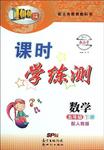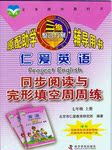
A. falling over on the ice
B. being left behind
C. damaging the sledges
D. getting too cold at night
 百年学典课时学练测系列答案
百年学典课时学练测系列答案 仁爱英语同步练习册系列答案
仁爱英语同步练习册系列答案科目:高中英语 来源:设计必修三英语北师版 北师版 题型:050
| |||||||||||||||||||||||||||||||||||||||||||||||||||||||||||||||||||||||||
查看答案和解析>>
科目:高中英语 来源: 题型:阅读理解
It came as something of a surprise when Diana, Princess of Wales, made a trip t Angola in 1997, to support the Red Cross’s campaign for a total ban on all anti-personnel landmine landmines(地雷)Within hours of arriving in Angola, television screens around the world were filled with images of her comforting victims injured in explosions caused by landmines. “I knew the statistics,” she said. “But putting a face to those figures brought the reality home to me; like when I met Sandra, a 13-year-old girl who had lost her leg, and people like her.”
The Princess concluded with a simple message: “We must stop landmines”. And she used every opportunity during her visit to repeat this message.
But, back in London, her views were not shared by some members of the British government, which refused to support a ban on these weapons. Angry politicians launched an attack on the Princess in the press. They described her as “very ill-informed” and a “loose cannon”(乱放炮的人).
The Princess responded by brushing aside the criticisms: “This is a distraction(干扰), we do not need. All I’m trying to do is help.”
Opposition parties, the media and the public immediately voiced their support for the Princess. To make matters worse for the government, it soon emerged(显现出来)that the Princess’s trip had been approved by the Foreign Office, and that she was in fact very well-informed about both the situation in Angola and the British government’s policy regarding landmines. The result was a severe embarrassment for the government.
To try and limit the damage, the Foreign Secretary, Malcolm Rifkidnd, claimed that the Princess’s views on landmines were not very different from government policy, and that it was “working towards” a worldwide ban. The Defense Secretary, Michael Portillo, claimed the matter was “a misinterpretation or misunderstanding.”
For the Princess, the trip to this war-torn country was an excellent opportunity to use her popularity to show the world how much destruction and suffering landmines can cause. She said that the experience had also given her the chance to get closer to people an their problems.
Princess Diana paid a visit to Angola in 1997
A. to clarify(澄清)the British government’s stand on landmines
B. to establish her image as a friend of landmine victims
C. to investigate the sufferings of landmine victims there
D. to voice her support for a total ban of landmines
What did Diana mean when she said “…putting a face to those figures brought the reality home to me”(Line 5, Para. 1)?
A. Meeting the landmine victims in person made her believe the statistics.
B. She just couldn’t bear to meet the landmine victims face to face.
C. The actual situation in Angola made her like going back home.
D. Seeing the pain of the victims made her realize the seriousness of the situation.
Some members of the British government criticized Diana because
A. They were actually opposed to banning landmines.
B. She was ill-informed of the government’s policy.
C. She had not consulted the government before the visit.
D. They believed that she had misinterpreted the situation in Angola.
How did Diana respond to the criticisms?
A. She made more appearances on TV.
B. She paid no attention to them.
C. She rose to argue with her opponents.
D. She met the 13-year-old girl as planned.
What did Princess Diana think of her visit to Angola?
A. It had caused embarrassment to the British government.
B. It had greatly promoted her popularity.
C. It had brought her closer to the ordinary people.
D. It had affected her relations with the British government.
查看答案和解析>>
科目:高中英语 来源:2012届北京市高三高考预测英语试卷(带解析) 题型:阅读理解
Thanks a Million, Dad
I was born disabled.A difficult birth, feet first, my head stuck.By my first birthday, I couldn't stand or walk.
When I was three, the doctor told dad I had cerebral palsy (脑瘫).A loss of oxygen to my brain had destroyed brain signals to the right side of my body.
But no son of my dad' s was going to be disabled.Every morning before breakfast and every evening before bed, my dad placed me on the bedroom floor to exercise my right leg.The muscles were shrunk and twisted together.Back and forth up and down, my dad pushed and pulled the muscles into shape.
But my dad' s exercise of passion didn't stop there.For my 13th birthday, he threw me a special party.When everybody was gone, he brought me to open a large box, it was a-set of boxing gloves.We put them on.My dad kept on beating me mercilessly.Each time I tried to get up, leather kissed my nose, eyes and jaw.I "begged him to stop. He said he beat me to get me ready for the tough world.
That same year, I was the only kid in my neighborhood that wasn't picked for Little League. Two weeks later.Dad started the Shedd Park Minor League, and every kid played.Dad coached us and made me a pitcher (棒球投手).
The power of my dad' s love guaranteed I walked and more.In high school, I became a football star.
In 1997, a brain surgeon in San Jose told me I didn’t t have cerebral palsy after all.He explained how and where the doctor' s forceps (镊子) at birth had damaged my brain.
My dad never knew the whole truth since he passed away years ago.But all that counts is the bottom line.After all his madness, on this Father' s Day, like every Father' s Day, I' m no longer disabled.
【小题1】What caused the author' s disability?
| A.A failed operation. |
| B.The doctor's forceps. |
| C.An accident in a game. |
| D.Shrunken and twisted muscles. |
| A.The author has a talent for boxing. |
| B.The author achieved a lot thanks to his father' s love. |
| C.The author became a baseball star with the help of his father. |
| D.The author doesn't think his father should be so strict with him. |
| A.wouldn't give up hope easily |
| B.believed his son was a normal child |
| C.blamed the doctors for his son' s disability |
| D.couldn't accept the truth that his son was disabled |
| A.remember his father |
| B.encourage disabled children |
| C.show the difficulty the disabled face |
| D.give advice to the parents of disabled children |
查看答案和解析>>
科目:高中英语 来源:2011-2012学年陕西省咸阳市高三上学期第一次月考英语题 题型:阅读理解
Thanks a Million, Dad
I was born disabled.A difficult birth, feet first, my head stuck.By my first birthday, I couldn't stand or walk.
When I was three, the doctor told dad I had cerebral palsy (脑瘫).A loss of oxygen to my brain had destroyed brain signals to the right side of my body.
But no son of my dad' s was going to be disabled.Every morning before breakfast and every evening before bed, my dad placed me on the bedroom floor to exercise my right leg.The muscles were shrunk and twisted together.Back and forth up and down, my dad pushed and pulled the muscles into shape.
But my dad' s exercise of passion didn't stop there.For my 13th birthday, he threw me a special party.When everybody was gone, he brought me to open a large box, it was a-set of boxing gloves.We put them on.My dad kept on beating me mercilessly.Each time I tried to get up, leather kissed my nose, eyes and jaw.I "begged him to stop.He said he beat me to get me ready for the tough world.
That same year, I was the only kid in my neighbourhood that wasn't picked for Little League.Two weeks later.Dad started the Shedd Park Minor League, and every kid played.Dad coached us and made me a pitcher (棒球投手).
The power of my dad' s love guaranteed I walked and more.In high school, I became a football star.
In 1997, a brain surgeon in San Jose told me I didn’t t have cerebral palsy after all.He explained how and where the doctor' s forceps (镊子) at birth had damaged my brain.
My dad never knew the whole truth since he passed away years ago.But all that counts is the bottom line.After all his madness, on this Father' s Day, like every Father' s Day, I' m no longer disabled.
1.What caused the author' s disability?
|
A.A failed operation. |
B.The doctor's forceps. |
|
C.An accident in a game. |
D.Shrunken and twisted muscles. |
2.What do we learn from the passage?
|
A.The author has a talent for boxing. |
|
B.The author achieved a lot thanks to his father' s love. |
|
C.The author became a baseball star with the help of his father. |
|
D.The author doesn't think his father should be so strict with him. |
3.Paragraph 3 suggests that the author' s father____.
|
A.wouldn't give up hope easily |
|
B.believed his son was a normal child |
|
C.blamed the doctors for his son' s disability |
|
D.couldn't accept the truth that his son was disabled |
4.The author wrote the passage to ____.
|
A.remember his father |
|
B.encourage disabled children |
|
C.show the difficulty the disabled face |
|
D.give advice to the parents of disabled children |
查看答案和解析>>
科目:高中英语 来源:2012届度福建省高三9月月考英语题 题型:完型填空
I was born disabled.A difficult birth, feet first, my head 46 in the birth canal(产道). 47 I was 3, the Hospital in Boston told my father I had cerebral palsy(脑瘫).A loss of oxygen to my brain had destroyed brain 48 to the right side of my body.But 49 son of my dad’s was going to be disabled.Every day my dad 50 me on the bedroom floor to 51 my right leg.His job was to craft(用手精心推拉) them straight, at any 52 .Back and forth, up and down, my dad pushed and pulled the muscles into 53 .But my dad’s help didn’t stop there. 54 my 13th birthday, he threw me a special party.When everybody was gone, he brought me a set of boxing gloves.We put them on.My dad continued to 55 me mercilessly.Each time I 56 him to stop.He told me I was a man now and things would be extra 57 for me.That same year, I was the only kid in my neighborhood that wasn’t 58 for Little League.Everybody laughed at me.Two weeks 59 , Dad started the Shed Park Minor League.Dad coached the Yankees and 60 me a pitcher(棒球投手).In high school, I became a football star.The 61 of my dad’s love guaranteed I walked and more.In 1997, a brain doctor in San Jose told me I didn’t have cerebral palsy 62 .
My dad never knew the whole truth 63 he passed away years ago.But all that 64 is the bottom line.After all his 65 , on this Father’s Day, like every Father’s Day, I’m no longer disabled.
|
1. |
|
|
2. |
|
|
3. |
|
|
4. |
|
|
5. |
|
|
6. |
|
|
7. |
|
|
8. |
|
|
9. |
|
|
10. |
|
|
11. |
|
|
12. |
|
|
13. |
|
|
14. |
|
|
15. |
|
|
16. |
|
|
17. |
|
|
18. |
|
|
19. |
|
|
20. |
|
查看答案和解析>>
湖北省互联网违法和不良信息举报平台 | 网上有害信息举报专区 | 电信诈骗举报专区 | 涉历史虚无主义有害信息举报专区 | 涉企侵权举报专区
违法和不良信息举报电话:027-86699610 举报邮箱:58377363@163.com